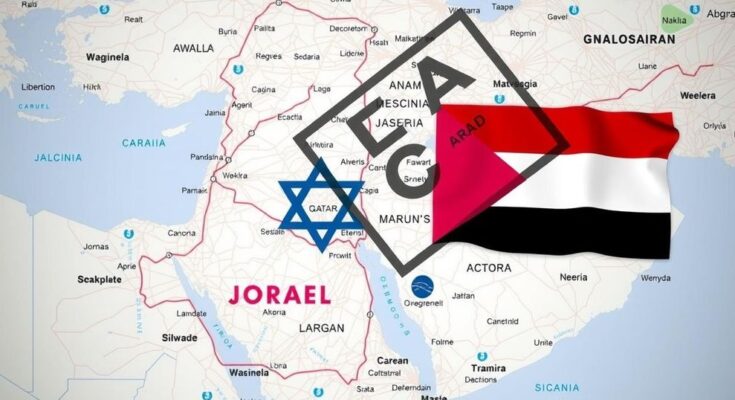Israel’s controversial map, claiming parts of Jordan, Lebanon, and Syria, sparked strong condemnation from Qatar and Jordan, escalating regional tensions. Qatar labeled it a violation of international law, while Jordan reaffirmed Palestinians’ rights to their territory. Both nations condemned Israel’s expansionist claims, emphasizing the need for dialogue and adherence to international norms.
A recently released Israeli map, which asserts historical territorial claims on parts of Arab nations, has elicited significant backlash from Qatar and Jordan. The disputed map was shared via the Israeli Foreign Ministry’s Arabic social media account, depicting biblical boundaries purported to encompass areas beyond the current Israeli borders into regions of Jordan, Lebanon, and Syria. Such territorial claims have stoked regional tensions and audibly questioned the legitimacy of Israel’s sovereignty in these areas.
The Qatari Foreign Ministry reacted strongly, terming the publication a blatant violation of international law and threatening the prospect of peace in the region, especially considering the ongoing conflict in Gaza. The Ministry’s statement highlighted the necessity for international intervention to address Israel’s aggressive territorial ambitions. Similarly, Jordan’s Ministry of Foreign Affairs dismissed the claims as violations of Palestinians’ rights to statehood, emphasizing the illegitimacy of asserting territorial control over areas recognized as occupied.
The protest from both Qatar and Jordan underscores a unified Arab stance against perceived Israeli expansionism, spotlighting the historical grievances surrounding the Israeli-Palestinian conflict. National representatives from both countries voiced their collective commitment to the Palestinian cause and highlighted the need for resolving longstanding disputes through dialogue and adherence to established international legal frameworks.
The situation surrounding the recent Israeli map arises from long-standing tensions regarding territorial claims and sovereignty in the Middle East. Israel’s historical references to biblical territory have often been a point of contention, as they come in conjunction with ongoing conflicts regarding Palestinian statehood and Arab territorial rights. The map’s implication that Jordan, Lebanon, and Syria are part of ancient Israel undermines decades of diplomatic efforts aimed at peace, particularly regarding the recognition of Palestinian rights and protection of Arab sovereignty.
The outcry from Qatar and Jordan regarding the Israeli map reflects deep-rooted regional tensions and the ongoing struggle for Palestinian rights. Both nations have firmly rejected the legitimacy of Israel’s claims to territories that they argue belong to Arab nations and the Palestinian people. Their official denunciations of the map serve to reaffirm support for Palestinian statehood and raise awareness for international accountability regarding territorial disputes in the Middle East.
Original Source: www.palestinechronicle.com




